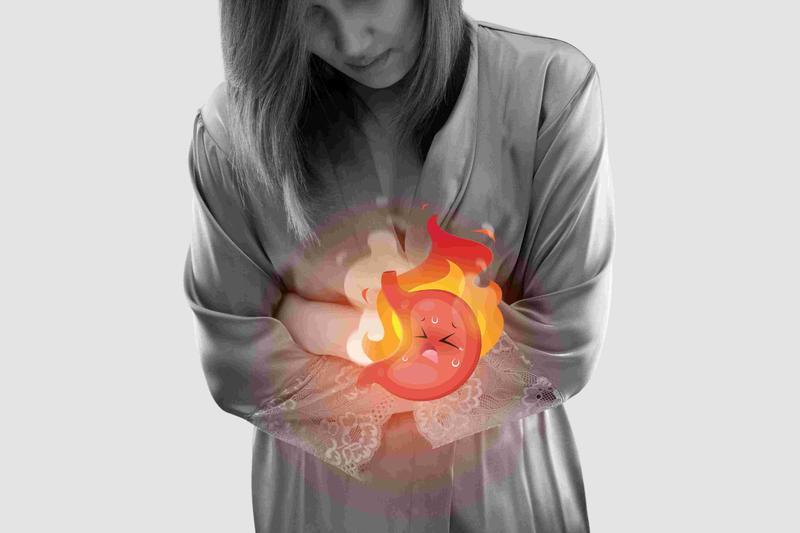Gastroesophageal Reflux Disease (GERD): Managing the Fire Within
Gastroesophageal Reflux Disease (GERD): Managing the Fire Within
Gastroesophageal Reflux Disease (GERD) is a prevalent digestive disorder that affects millions of people worldwide. It occurs when stomach acid flows back into the esophagus, causing uncomfortable symptoms and potentially damaging the esophageal lining over time. In this article, we will explore the intricacies of GERD, including its causes, symptoms, diagnosis, and effective management strategies. Let's delve into the world of GERD and learn how to manage the fire within for better digestive health.
Understanding GERD: The Acidic Backlash:
GERD occurs when the lower esophageal sphincter (LES), a ring of muscle between the esophagus and the stomach, does not close properly, allowing stomach acid to flow back into the esophagus. Several factors contribute to the development of GERD, including:
- Weakened LES: A weakened or malfunctioning LES can allow stomach acid to escape into the esophagus more easily, leading to symptoms of GERD.
- Hiatal Hernia: A hiatal hernia, where part of the stomach protrudes into the chest through the diaphragm, can contribute to GERD symptoms by affecting the function of the LES.
- Dietary Factors: Certain foods and beverages, such as spicy foods, citrus fruits, chocolate, coffee, and carbonated drinks, can trigger or exacerbate GERD symptoms.
Signs and Symptoms of GERD:
GERD can present a range of symptoms, which may vary in severity among individuals. Common signs and symptoms include:
- Heartburn: A burning sensation or discomfort in the chest, often after meals or when lying down, is a hallmark symptom of GERD.
- Regurgitation: Sour or bitter-tasting fluid backing up into the throat or mouth can occur due to the reflux of stomach acid.
- Dysphagia: Difficulty swallowing or a sensation of food getting stuck in the chest may indicate the presence of GERD.
- Chronic Cough and Hoarseness: GERD-related irritation of the esophagus and throat can cause a persistent cough, throat clearing, or hoarseness.
- Chest Pain: While less common, some individuals with GERD may experience chest pain that can mimic symptoms of a heart attack. If you experience chest pain, it is crucial to seek immediate medical attention to rule out any serious conditions.
Diagnosis and Management of GERD:
Diagnosing GERD involves a combination of medical history, symptom evaluation, and diagnostic tests. These may include:
- Upper Endoscopy: A procedure where a flexible tube with a camera is inserted through the mouth to examine the esophagus and stomach, allowing the doctor to identify any signs of inflammation or damage.
- Esophageal pH Monitoring: This test measures the level of acid in the esophagus over 24 to 48 hours, providing valuable information about acid reflux episodes.
- Barium Swallow: A series of X-rays taken after swallowing a contrast material to visualize the esophagus and identify any abnormalities.
Managing GERD focuses on relieving symptoms, healing the esophagus, and preventing complications. Effective strategies include:
- Lifestyle Modifications: Elevating the head of the bed, avoiding trigger foods, eating smaller, more frequent meals, and maintaining a healthy weight can help reduce symptoms.
- Medications: Over-the-counter antacids, H2 blockers, and proton pump inhibitors (PPIs) can provide temporary relief by reducing stomach acid production. Prescription-strength medications may be necessary for severe or persistent symptoms.
- Surgical Interventions: In rare cases, when lifestyle changes and medications fail to provide relief, surgical procedures such as fundoplication or LINX device placement may be considered to reinforce the LES and prevent acid reflux.
Preventing GERD and Promoting Digestive Health:
While GERD may be a chronic condition, certain lifestyle habits can help prevent or minimize its occurrence:
- Maintain a Healthy Weight: Excess weight can put pressure on the stomach, increasing the risk of acid reflux. Adopting a healthy diet and engaging in regular physical activity can contribute to weight management and overall digestive health.
- Eat Mindfully: Avoid large meals, especially before lying down, and take the time to chew food thoroughly.
- Manage Stress: Stress can exacerbate GERD symptoms. Incorporate stress-reducing techniques such as meditation, deep breathing exercises, and regular exercise into your daily routine.
- Quit Smoking: Smoking weakens the LES and can worsen GERD symptoms. Quitting smoking is not only beneficial for GERD but also for overall health.
Gastroesophageal Reflux Disease (GERD) can significantly impact one's quality of life, but with proper understanding and effective management strategies, it is possible to control the fire within. By recognizing the signs and symptoms, seeking timely diagnosis, and implementing lifestyle modifications and medications as needed, individuals can find relief from GERD and promote better digestive health. Remember, it's important to work closely with healthcare professionals to develop a personalized treatment plan that suits your specific needs, leading to a happier and healthier life.
Be the first to post a message!
